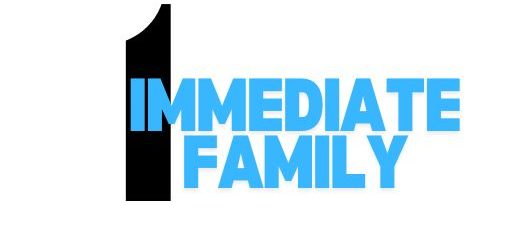We believe small caps can provide more diversified sector exposure compared to their large-cap peers. However, a focus on free cash flow (FCF) yield may further enhance diversification potential within small caps.
The fourth-quarter small-cap rally in the wake of the election resulted in strong gains in small-cap benchmarks in November. The Russell 2000 Index hit a 52-week high the day after the election, CNBC reported, as markets shifted to risk-on.
See also: Know What You Own When Diversifying With Quality
The potential for further interest rate cuts in 2025 could prove favorable for rate-sensitive small-cap companies. Investors looking to add small-cap exposures to their portfolio while increasing diversification should consider the VictoryShares Small Cap Free Cash Flow ETF (SFLO).
Increase Small-Cap and Portfolio Diversification With SFLO
SFLO tracks the Victory U.S. Small Cap Free Cash Flow Index (the Index), focusing on quality companies trading at a discount. The companies in the Index have historically generated high FCF yield. FCF is the cash remaining to a company after it has paid its expenses. Companies use this money to invest in paying dividends, paying down debt, or growing their business. It’s also considered one component of measuring a company’s health. FCF yield is a financial ratio that standardizes the FCF per share a company is expected to earn compared to its market value per share.
The Index screens for both current FCF and anticipated FCF, providing a more holistic approach to FCF investing. Additionally, a growth screen helps to remove the slowest-growing companies. By focusing on high-FCF-yielding companies with an attractive growth rate, SFLO may provide an attractive solution within small caps.
Data as of 11/30/24 sourced from VictoryShares
By focusing on high FCF yield and screening for growth, SFLO offers diversified sector exposure compared to its benchmark, the Russell 2000 Value Index. As of November 30, 2024, SFLO’s top sectors by weight included energy (27.06%), consumer discretionary (18.68%), and industrials (19.10%). In comparison, the Russell 2000 Value Index’s top sectors were financials (29.51%), industrials (12.69%), and consumer discretionary (9.39%).
Furthermore, SFLO’s index methodology minimizes liquidity constraints by beginning with a large universe of 2,500 companies through the VettaFi US Equity Mid/Small-Cap 2500 Index. It also eliminates the bottom 10% of securities based on liquidity.
SFLO carries a net expense ratio of 0.49% (gross expense ratio of 0.87%).
Net expense ratios reflect the contractual waiver and/or reimbursement of management fees through October 31, 2025.
For more news, information, and analysis, visit the Free Cash Flow Channel.
VettaFi LLC (“VettaFi”) is the index provider for SFLO, for which it receives an index licensing fee. However, SFLO is not issued, sponsored, endorsed, or sold by VettaFi, and VettaFi has no obligation or liability in connection with the issuance, administration, marketing, or trading of SFLO.
Disclosure Information
Carefully consider a fund’s investment objectives, risks, charges, and expenses before investing. To obtain a prospectus or summary prospectus containing this and other important information, visit http://www.vcm.com/prospectus. Read it carefully before investing. All investing involves risk, including the potential loss of principal.
All investing involves risk, including the potential loss of principal. Please note that the Fund is a new ETF with a limited history. The Fund has the same risks as the underlying securities traded on the exchange throughout the day. Redemptions are limited, and commissions are often charged on each trade. ETFs may trade at a premium or discount to their net asset value. The Fund invests in securities included in, or representative of securities included in, the Index, regardless of their investment merits. The performance of the Fund may diverge from that of the Index. Investments in smaller companies typically exhibit higher volatility. Investing in companies with high free cash flows could lead to underperformance when such investments are unpopular or during periods of industry disruptions.
The Fund could also be affected by company-specific factors that could jeopardize the generation of free cash flow. Derivatives may not work as intended and may result in losses. Large shareholders, including other funds advised by the Adviser, may own a substantial amount of the Fund’s shares. The actions of large shareholders, including large inflows or outflows, may adversely affect other shareholders, including potentially increasing capital gains. Investments in mid-cap companies typically exhibit higher volatility. The value of your investment is also subject to geopolitical risks such as wars, terrorism, environmental disasters, and public health crises; the risk of technology malfunctions or disruptions; and the responses to such events by governments and/or individual companies.
Additional Information
Investments in small-capitalization companies involve greater risks than those associated with larger, more established companies. Free Cash Flow Risk—Investing in companies with high free cash flows could lead to underperformance during periods when such investments are unpopular, and fluctuations in market conditions, industry disruptions, or company-specific factors may jeopardize the generation of free cash flow. Fund holdings and sector allocations are subject to change, may differ from the Index, and should not be considered investment advice.
The Victory U.S. Small Cap Free Cash Flow Index aims to select high quality companies from its starting universe by applying profitability screens. It then selects companies with the strongest free cash flow yield that exhibit higher growth. The Index is rebalanced and reconstituted quarterly. This Index calculates free cash flow yield by dividing expected free cash flow by enterprise value. Expected free cash flow is the average of trailing 12-month FCF and next 12-month forward free cash flow. Enterprise value (EV) measures a company’s total value, often used as a more comprehensive alternative to equity market capitalization.
The Russell 2000® Value Index is a market-capitalization-weighted index that measures the performance of those companies in the Russell 2000® Index with lower price-to-book ratios and lower forecasted growth values.
Distributed by Foreside Fund Services, LLC (Foreside). Foreside is not affiliated with Victory Capital Management Inc., the Fund’s investment adviser.
20241219-4093864





